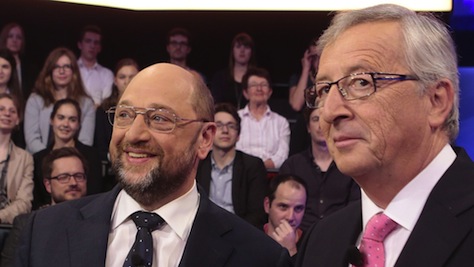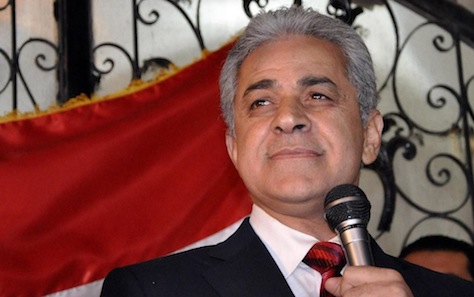On paper, Enrique Peñalosa looks like the best president Colombia might never have.![]()
As mayor of Bogotá between 1998 and 2001, Peñalosa introduced the widely popular TransMilenio rapid bus system, expanded a sprawling network of bicycle paths, and generally built upon the foundation on the progress established by his predecessor, Antanas Mockus. Together, Mockus and Peñalosa arguably transformed Bogotá into one of the most developed urban spaces in Latin America.
Six weeks ago, Peñalosa seemed to have the momentum in Colombia’s presidential election, building on his reputation as a moderate, non-corrupt public official. Poll after poll showed him vaulting into second place and gaining ground against the incumbent, Juan Manuel Santos. Early in April, polls started showing that he was nearing 20% support and, more incredibly, that voters preferred Peñalosa to Santos in a hypothetical runoff.
That’s all before Óscar Iván Zuluaga, the conservative candidate allied with former president Álvaro Uribe, started gaining traction. With Colombians set to vote on Sunday in what will likely be the first of two rounds of their presidential election, Zuluaga is now tied with Santos, according to polls, and either one could win the June 15 runoff.
* * * * *
RELATED: Five reasons why Zuluaga is beating Santos
in Colombia’s election
* * * * *
Meanwhile, Peñalosa has fallen back to single digits in polls. No one gives him much of a chance to advance to a runoff — in contrast to Mockus, who finished second in the 2010 presidential election as the candidate of the Partido Verde Colombiano (Colombian Green Party). In that election, Santos, running with Uribe’s support and on his record as Uribe’s defense minister, easily dispatched Mockus by a margin of 69.1% to 27.5%, given Mockus’s leftist politics.
This time around, many voters otherwise inclined to support Peñalosa have instead lined up behind Santos to block Zuluaga’s election, which would almost certainly torpedo the Santos administration’s current negotiations to bring to an end the 50-year guerrilla insurgency of the Fuerzas Armadas Revolucionarias de Colombia (FARC, the Revolutionary Armed Forces of Colombia). Continue reading How the Peñalosa campaign fell apart in Colombia


